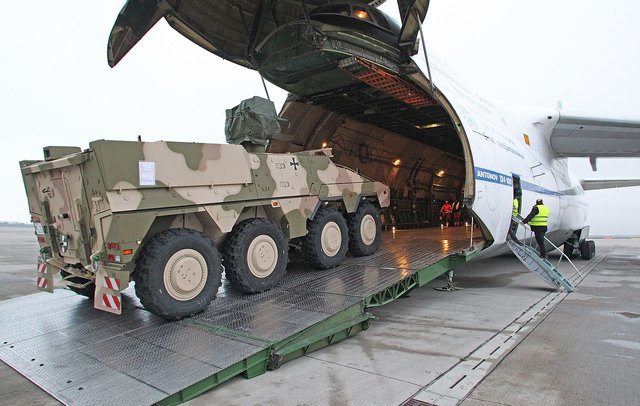MIV-Boxer, does “Made in the UK” still have a fighting chance?

Defense secretary Gavin Williamson to purchase German military equipment directly came with the promise that the odd choice will create additional jobs in the UK. If the purchase decision is maintained, it will likely indeed be accompanied by the request that production be centered within the client country. But whether built in the UK or continental Europe, the program will prove one of the most expensive ever, and one the UK can certainly not afford.
The British armament industry may be in as bad a shape as the Royal army itself, and the Infantry Fighting Vehicles (IFVs) replacement deal may be the straw to break the camel’s back. The Royal army has been in need of new IFVs for a very long time. The vehicles currently in use are a mixture of Warriors and Mastiffs bought for Afghanistan, which have all been in service for too long to extend or upgrade them. In addition, the 1970s design simply is no longer fit to protect the soldiers from the threats they are likely to encounter nowadays. In the early 2000s, Britain had therefore entered the Boxer program, a new generation IFV, which would allow soldier and commanders to exercise their craft in suitable and modern circumstances. However, they quickly left the program in favor of developing a new type of vehicle: The FRES program, which ended in 2009 in an absolute fiasco. Upon rendering the FRES program moot, the British government issued a statement, saying: “In February 2007 we concluded that the MoD’s attempts to meet its medium-weight vehicle requirement had been a sorry story of indecision, changing requirements and delay. Two years later the story is, incredibly, even worse. We find it extraordinary that, some seven months after announcing General Dynamics UK as the provisional preferred bidder for the FRES Utility Vehicle, the MoD has announced that priority is now to be given to the FRES Scout Vehicle. Whilst we recognise that the MoD’s equipment requirements need to reflect changing threats, that is no excuse for the MoD’s behaviour in this programme; they have wasted their and industry’s time and money. The FRES Utility Vehicle programme was, from the outset, poorly conceived and managed.” After having considered purchasing the Boxer, the British had gone solo and missed their mark: many years and millions of pounds after the army expressed its need for a new vehicle, still none had arrived.
And so, despite having sworn earlier before never to buy anything off-the-shelf, the British were back to square one. Now, Defense secretary Gavin Williamson has not only announced he was going to buy off the shelf (the German-Dutch Artec Boxer), but that he was going to do it blindly - that is, with no request for proposals. Defense World reported: “The British ministry of defense (MoD) is desperate to upgrade its existing armored fleet and wishes to sign a contract with German ARTEC consortium as quickly as possible to rule out competition, The Times reported citing unnamed defense industry sources. The urgency is driven by the fact that three attempts at buying vehicles have already been made at a cost of £300 million ($366mn), none of which resulted in any new hardware.” In full opposition with Liz Truss, Chief Secretary to the Treasury tasked with MoD budget matters, this decision could additionally be interpreted as a political agenda to shut down debate on the subject. In urgent need of new vehicles, the Royal army is thinking of simply flying over to Germany, signing a large check, and coming back with the vehicles. But after so much hesitation and chaos, the Defense secretary had to come up with some form of good news. It came, under the form of a workshare promise from the Germans.
Enthusiastic at the idea of finally managing to sell the Boxer to the British, after trying twice and following the disastrous FRES program, the Germans pledged that 60% of the jobs created by the deal would land in England, so as to reduce the overall British blood loss from the IFV-replacement program. Defense World again reported that “Krauss-Maffei Wegmann (KMW)-Rheinmetall joint venture ARTEC has signed agreements with UK based BAE Systems, Pearson Engineering and Thales companies offering 60 percent of workshare if UK selects BOXER Infantry Fighting Vehicle (IFV)for Army’s next generation Mechanised Infantry Vehicle (MIV) program. According to the agreements, at least 60% of BOXER’s value creation and 100% of final assembly will take place in Britain.” But the forest may be hidden by the trees: considering that the vehicles are already being built in Germany, will it not considerably increase the expense to have them produced in the UK, with the creation of new assembly lines? Moreover, the Germans are unlikely to yield the technology altogether without an additional fee. No matter how politically satisfying it can be to announce the creation of the jobs, the fact of the matter is that the Royal army will be facing a bill it simply can no longer afford, if the deal is sealed, whether the production occur in Germany or the UK.
It’s a classic case of damned if you do, damned if you don’t. With a ready-to-buy solution in Germany, and another ready-to-build solution in the UK, Williamson will have no option but to further strain Defense budgets, at unprecedented levels. And Germany, one of the leading nations of the European Union, is unlikely to do him any favors, after the UK pulled out of the Boxer program in 2009, and of the EU altogether in 2016.